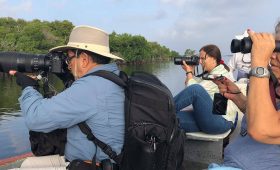At the beginning of December, an adventure for two partners from different cooperatives of Co’ox Mayab started. It began with 23 hours of travel from the CAME terminal in the city of Merida to the TAPO terminal in Mexico City; the trip allowed us to admire and marvel at completely different landscape than the ones we’re used to see in the Yucatan.
The purpose of the trip was to participate in an experiences exchange organized by Fundación ADO to get to know the initiatives and the people who are part of the community-based projects that have been supported by the foundation. The session started on Thursday, December 6th at 11 o’clock in a room inside the terminal. The participants introduced themselves by talking a little about the project or group they represent, how’s the region they live in and what they like best.
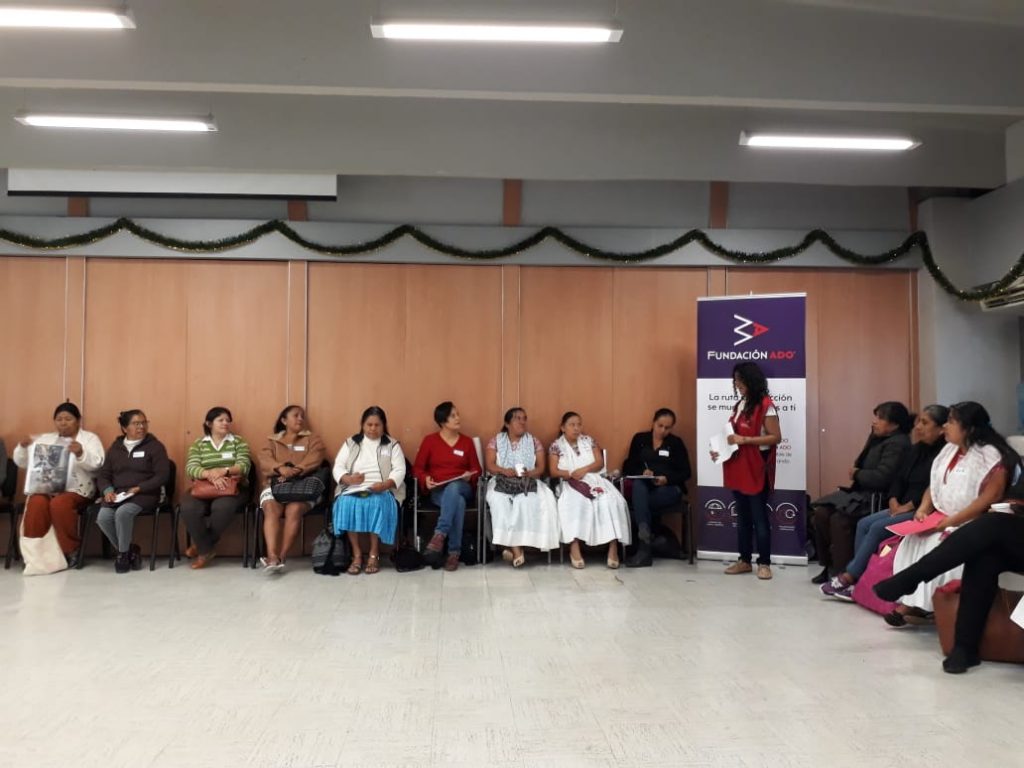
The participation was very diverse because there were people from Yucatan, Campeche, Chiapas, Oaxaca, Veracruz and other states of the Mexico. During the day we talked about the difficulties that each organization has had and what they have done. Together with colleagues from Campeche and Veracruz with whom we collaborated in a tourist project, we discussed the topic of marketing.
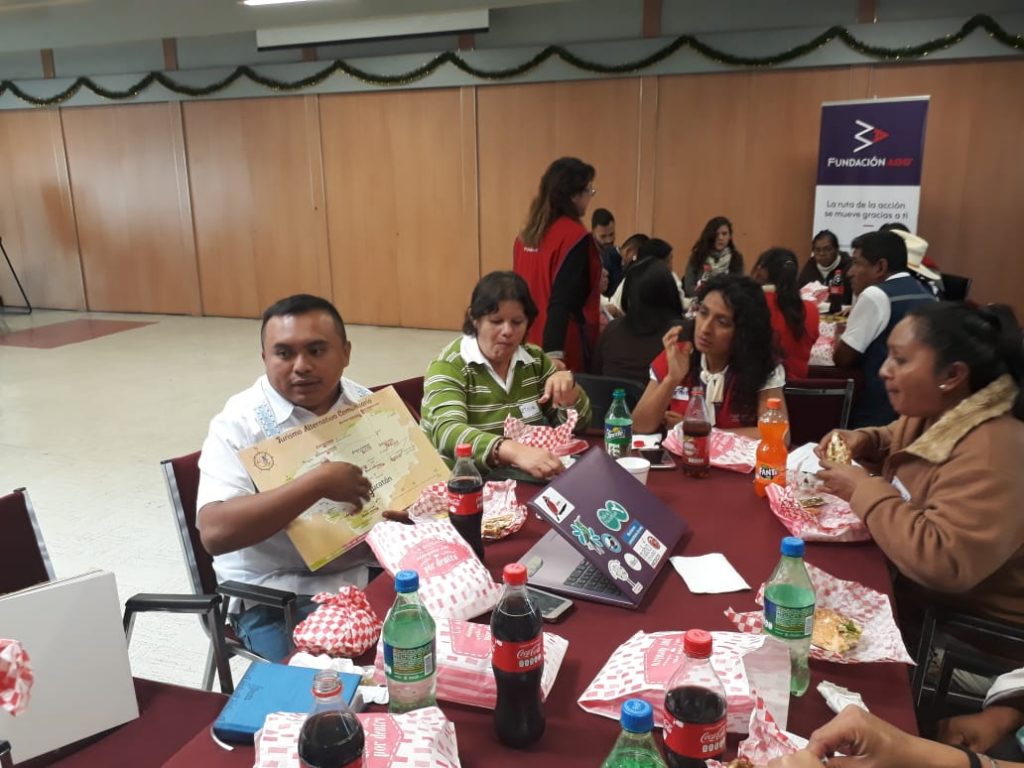
From our point of view, Co’ox Mayab was the most experienced organization, because it is supported by students who do their social service, professional internship or volunteering to perform various tasks that have contributed to the promotion and commercialization of the organization’s tourist services. We agree that the relationships with lodging establishments, agencies, and even with the most sophisticated schools and universities are of great importance in maintaining a visitor flow towards the communities that provide tourist services.
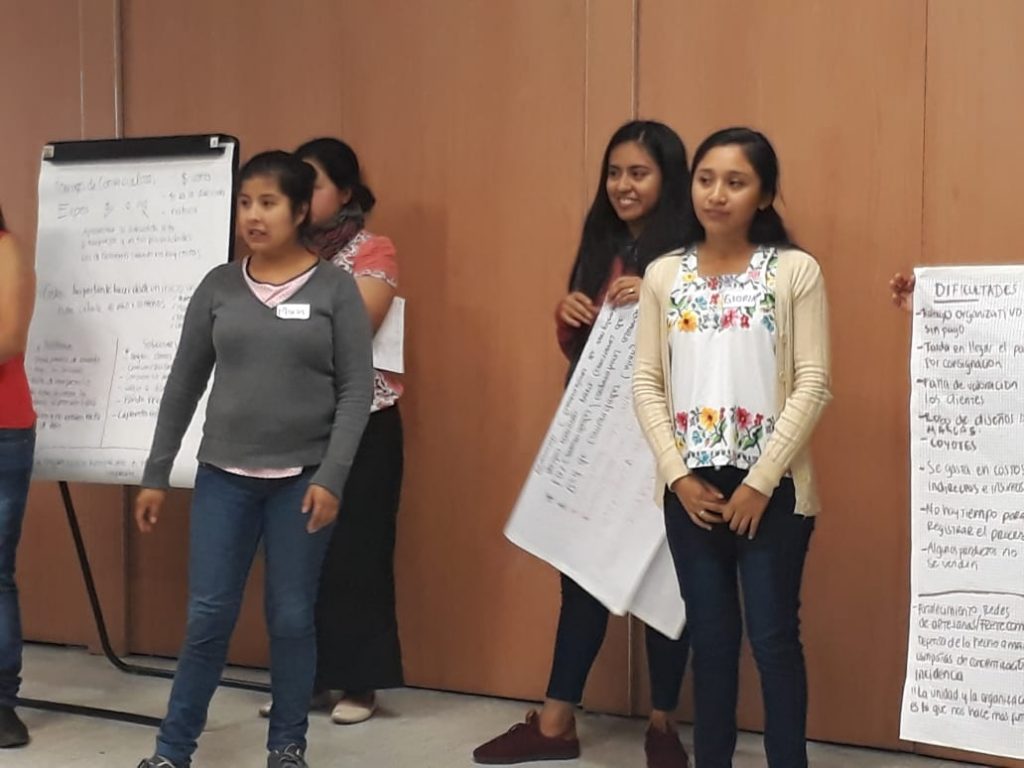
At the end of the day’s activities we went in a caravan of more than 15 people to the hotel where we stayed. After we settled in, a group of eight of us decided to go for a walk to Downtown Mexico City. Upon arrival, some only admired and others took photos, the site had Christmas decorations everywhere and lots of white and red poinsettias adorned the space, we were walking slowly and passed the Torre Latinoamericana, Bellas Artes and Garibaldi, we observed the buildings and enjoyed the atmosphere of the city.
On Friday 7th, the day of the expo, we left the hotel again in a caravan and the first thing we did when we arrived at the terminal was to install our stands in the spaces assigned to us, people came to see the products, to ask for prices, and in our case to ask for tourist packages and Co’ox Mayab destinations. Those of us who stayed in the same hotel knew that not everyone was going to return to rest after the expo because they had to board a bus back to their state or community and before everyone left, the farewells began but with the hope of seeing us again in the future.
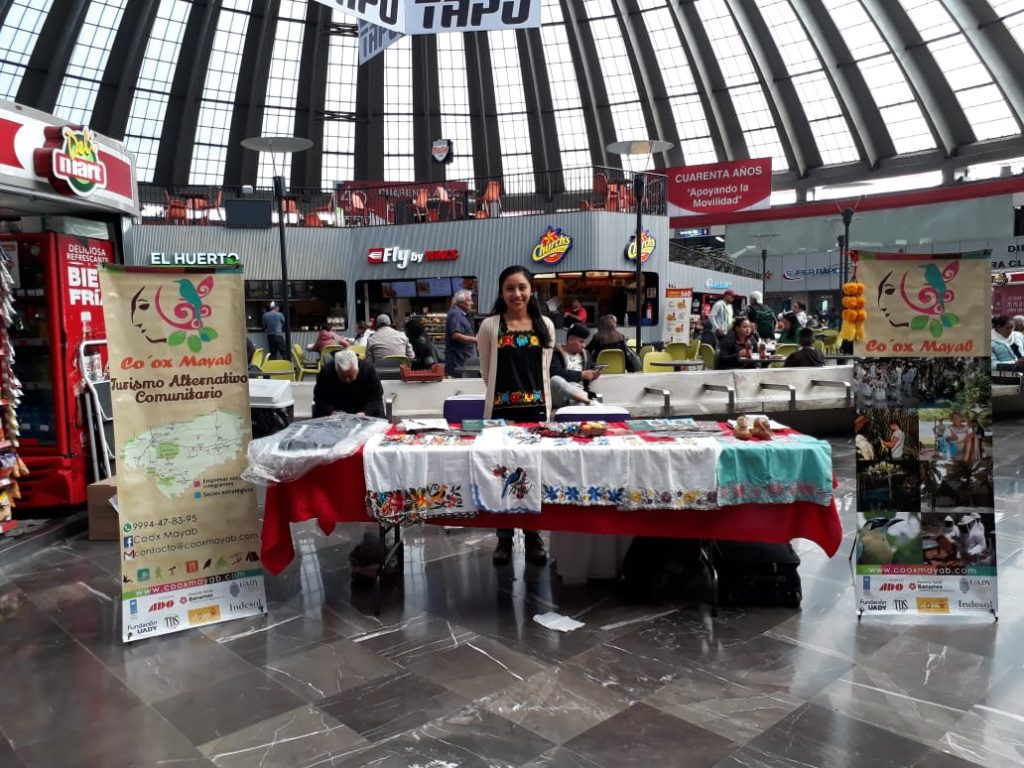
On Saturday 8th our day began at 6 o’clock in the morning when we left the hotel towards the subway to meet with Ernesto in the Tasqueña station, a colleague from Umbral Axochiatl Xochimilco, who accompanied us to his operations center where we met Don Dionisio, president of the organization who told us about the conservation of the chinampas, the axolotl, the sale of handicrafts from all parts of Mexico and other projects that are in progress. Ernesto was our guide, who took us to don Dionisio’s chinampa and told us about the area’s volcanoes and the mountainous scenery that surrounded us, the vegetation, the history of the site and how the number of channels has decreased, also about the activities of the region, among other things.
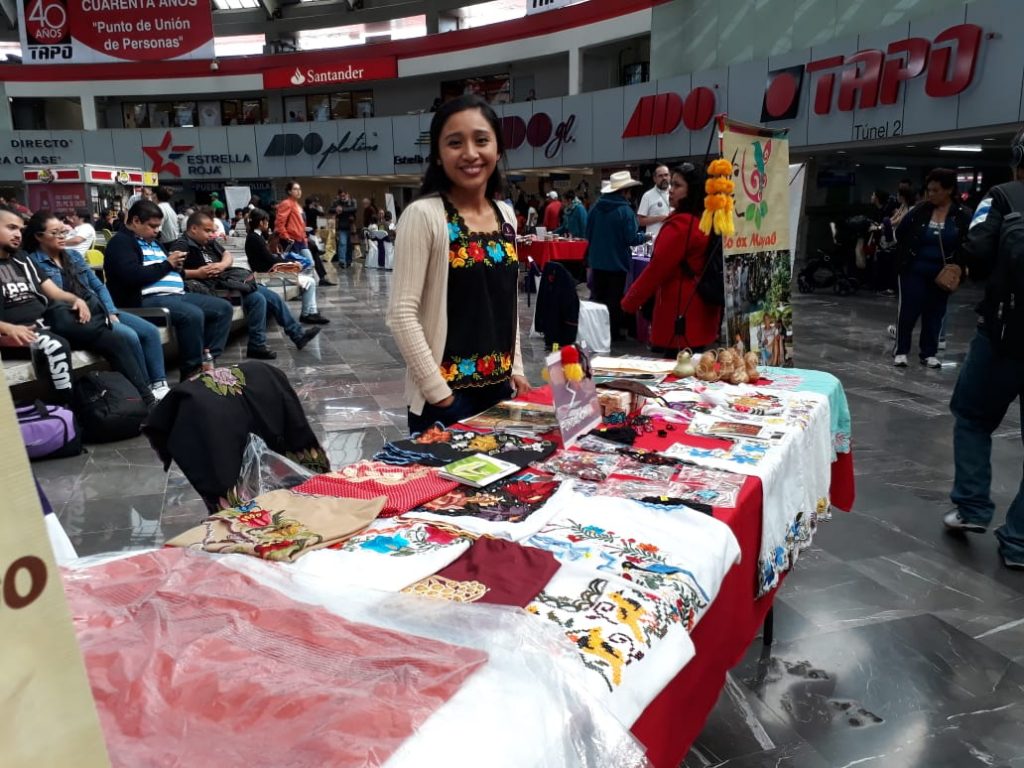
Lunchtime was a pleasant moment of coexistence with students that were making a documentary about the life of Don Dionisio, Mari, Ernesto, Carlos and other collaborators of Umbral. Our lunch, some delicious bean tostadas with fresh cheese from the region, cream and tomato sauce, was delicious and the tostadas were quickly gone.
On the way back, we got to know the axolotl and the family in charge of its care, reproduction and conservation. We learned that since an axolotl is born, the first three months of life are very important because it is the time in which its care is intense and when any microorganism that infects its food or water can kill it. We also learned that a golden axolotl or albino doesn’t have the capacity to regenerate itself due to the genetic deformities that are caused by mating between siblings.
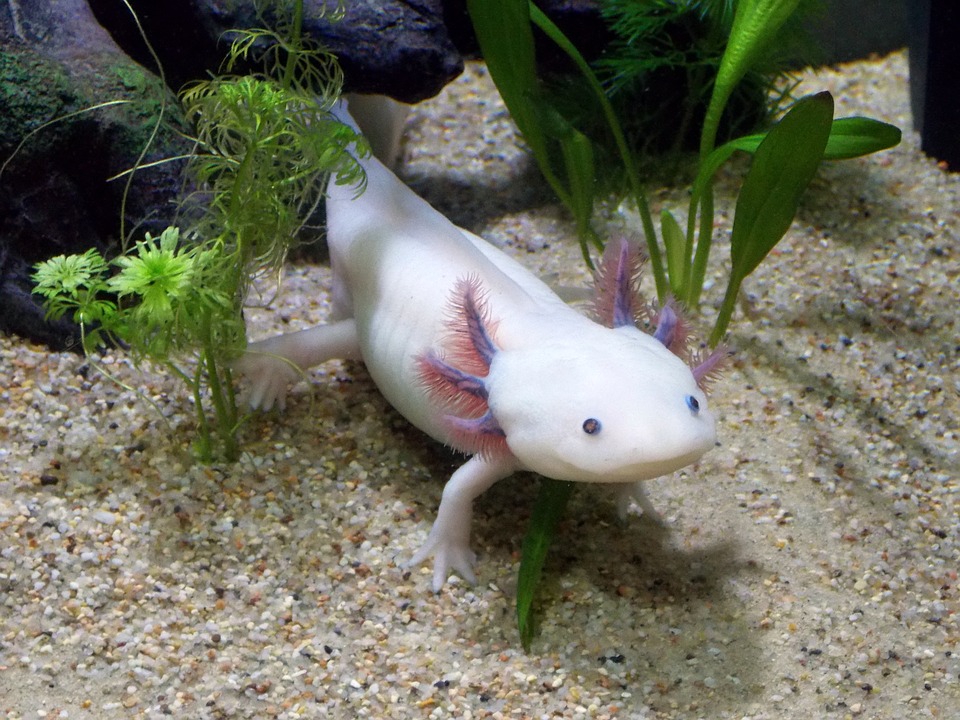
The day was about to end, and it was almost time to board our bus back to Yucatan, so to make the most of the hours we had left we went to El Templo, an interesting place that was almost rubble and was covered tarpaulins and tin roofs. After the earthquake of September 2017, the people organized themselves to support the cleaning work. Although the place was not in the best conditions, the atmosphere was very pleasant and the people were friendly, it was the perfect space to interact with people of all ages, play hopscotch and to share a delicious pulque. The day had been very satisfying and we were tired, so we made our way back to Merida.


